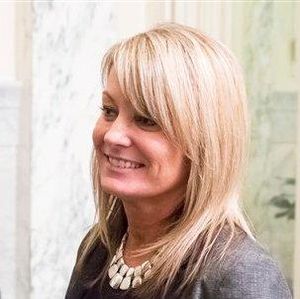Ybarra’s school budget pitch draws high marks from lawmakers
Here’s a link to my full story at spokesman.com on state schools Superintendent Sherri Ybarra’s budget pitch to lawmakers yesterday, in which she told lawmakers she wants a new education culture in Idaho, “to provide high-quality education while moving way from a very rigid philosophy of over-testing, compliance, and a one-size-fits-all accountability structure.”
In a nearly hour-long budget presentation that Ybarra said had been in the works for a year, she pressed for a 7.5 percent boost in state funding for schools, pushed to continue the state’s multi-year commitment to raise teacher salaries, called for flexibility for school districts, and outlined her own new initiative, regional centers to help rural schools in the state collaborate and economize.
Her budget pitch drew praise from lawmakers, particularly after her first one last year, a brief overview that was lean on details from the newly elected superintendent, left them surprised and hoping for more.
“I have a lot to say this year,” Ybarra told the Joint Finance-Appropriations Committee with a smile.
Lawmakers on the budget committee gave her high marks.
“It’s clear that her year on the ground – she called it a ‘listening tour’ – was very productive time for her and for the school system as well,” said Sen. Shawn Keough, R-Sandpoint, JFAC co-chair.
When Ybarra first came before the Joint Finance-Appropriations Committee a year ago, Keough said, “She’d just been elected, she’d just been sworn into office, and two weeks later she was expected to give a presentation on a budget she didn’t build. She took the year to do what she said she would do.”
Ybarra stressed that the budget proposal she presented wasn’t just hers – it was the result of months of meetings and collaboration with school districts, stakeholder groups and others.
Lawmakers now must decide whether to support the big boost for schools. “It appears this year there is support for increasing the K-12 budget,” Keough said. “However, there are also proposals on the table now for tax relief, for tax cuts, and there are some other competing proposals out there on the table now as well. So we’ll see.”
Ybarra’s budget request is slightly lower than Gov. Butch Otter’s proposal for a 7.9 percent increase, but she said she strongly supports the governor’s higher figure. The biggest features of the two budget plans – funding for the next year of phasing in a new teacher “career ladder,” and restoring operational funds to school districts to 2009 levels to make up cuts that hit schools during the economic downturn – are the same.
“I think the differences are how they get to the same goals,” Keough said.
Among the differences: Ybarra proposed $5 million for increased efforts at literacy, making sure children can read by the 3rd grade. Otter proposed $10 million. That item is a recommendation from Otter’s school improvement task force.
Ybarra proposed a $2 million increase for classroom technology; Otter proposed a $10 million increase. Ybarra proposed various additional pay boosts; Otter proposed 3 percent overall for raises, in line with his proposals for all state employees.
“We are on the same page, we are on the same paragraph,” Ybarra told reporters after her budget pitch. “We just may not be on the same line item, which is not uncommon.”
She outlined a new plan to create “rural schools centers” around the state. It’s a relatively small budget item, at $300,000 for next year, to establish the first center.
It’s not a push to combine rural school districts, Ybarra said. “It is an educational support agency or a partnership. It will support academic achievement through a shared menu of programs and educational services.” That could include anything from early learning, special ed services and teacher training to financial services, technology support and nursing services, Ybarra said.
“Each center will look different depending on the different region of the state, because they have different needs,” she told lawmakers. “This is truly the fiscally responsible approach and the business model that we have been looking for in education.”
She also requested funding for a study of student testing next year, and announced that the state has agreed to shave 30 minutes each off the time students spend this year taking standardized tests in math and English language arts. “The parental concerns and stakeholder concerns that we had were valid,” she said.

